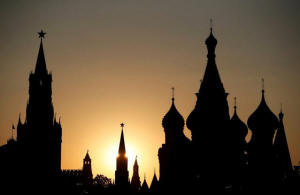|
EU unlikely to heed British call for more
Russia sanctions
 Send a link to a friend
Send a link to a friend
 [August 23, 2018]
By Gabriela Baczynska [August 23, 2018]
By Gabriela Baczynska
BRUSSELS (Reuters) - The European Union is
unlikely to heed London's call for it to match the latest U.S. sanctions
against Moscow over an attack on a former Russian spy in Britain earlier
this year, diplomats in Brussels said.
Britain's foreign minister, Jeremy Hunt, said in Washington this week
the EU should step up pressure on Russia after the ex-spy was attacked
with a nerve agent in the English city of Salisbury. The West blames
Moscow for the attack; the Kremlin denies involvement.
But EU diplomats doubted more sanctions would be imposed. They cited the
usual divisions between EU members advocating a tough line on Moscow and
those arguing for more engagement.
"There is no way. Italy and Austria, even France, want to do business
with Russia too much," one EU diplomat said.
Any new sanctions would require unanimity among all 28 member states.
The EU now has economic sanctions in place until the end of January
against Russia over its role in the conflict in Ukraine, which has
killed some 10,000 people and still simmers. It also has curbs on doing
business with Crimea, which Moscow annexed from Ukraine in 2014.

In late July, the EU added six new entries to its blacklist of entities
subject to an asset freeze in the EU over the Ukraine conflict.
Diplomats said eight entries had been proposed, but two were dropped
after opposition from Germany and Italy, who feared damage to their
business dealings with Russia.
"This discussion has shown there are clear limits of how far we can go
on sanctions," said another EU diplomat. "This does not rule out adding
a name or an entity to the blacklist here or there. But there is no
scope for more broad sectoral measures."
Beyond Salisbury and Ukraine, relations between Russia and the West have
also been damaged by the war in Syria - where they back opposite sides.
The role of NATO, security issues and Russia's record on human rights
have all hurt relations as well.
On Wednesday, Russian President Vladimir Putin slammed the latest U.S.
sanctions, which have weighed on the rouble and forced Russia's economy
minister to expect lower economic growth.
[to top of second column]
|

The sun sets behind the Kremlin's Spasskaya Tower and St. Basil's
Cathedral during the soccer World Cup in Moscow, Russia June 18,
2018. REUTERS/Christian Hartmann/File Photo

NO FORMAL PROPOSAL
After Hunt's speech in Washington, EU officials said Britain had yet
to make a formal proposal to the bloc. They thought Hunt might raise
the issue when all 28 foreign ministers meet for talks in Austria at
the end of the month.
Hunt spoke after Washington imposed sanctions against Moscow
covering national-security-related goods and promised more
hard-hitting measures unless Russia gives "reliable assurances" it
will no longer use chemical weapons.
Many EU states expelled Russian diplomats over Salisbury. But
opposition from the doves, who also include Greece and Hungary, has
blocked any further measures.
Austria, which casts itself as neutral and, unlike most EU states,
is not a NATO member, is in a delicate position. It now holds the
EU's rotating presidency, which should act as an unbiased
deal-broker.
Questions over whether Vienna is seeking to improve ties with Moscow
have been rife since Putin attended the wedding of Austrian Foreign
Minister Karin Kneissl earlier this month.
(Editing by Larry King)
[© 2018 Thomson Reuters. All rights
reserved.]
Copyright 2018 Reuters. All rights reserved. This material may not be published,
broadcast, rewritten or redistributed.
Thompson Reuters is solely responsible for this content.
 |